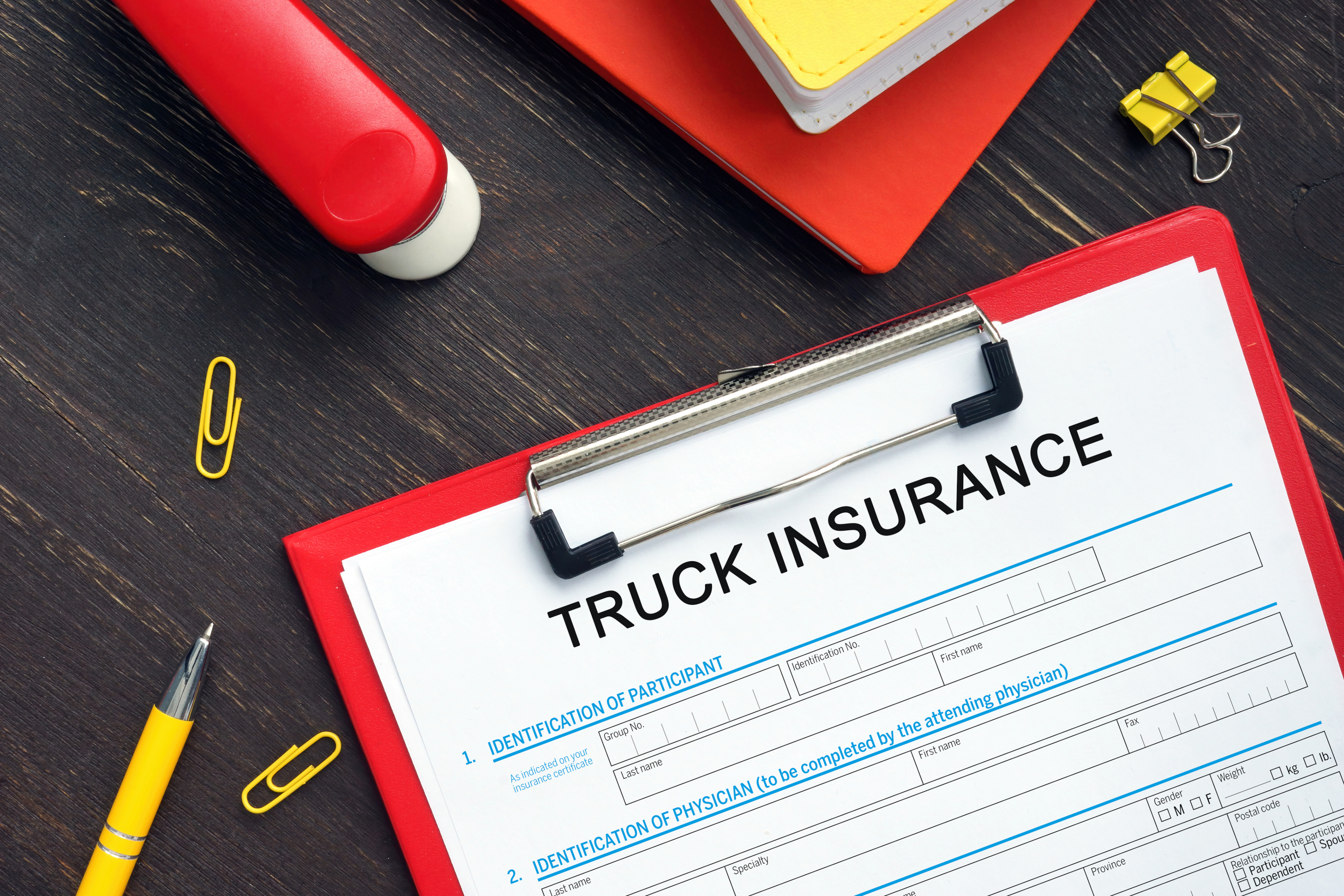As a truck driver, understanding and maximizing tax deductions can help you save on your annual tax bill. Integra Funding Solutions is here to help you navigate the complex world of tax deductions specifically for truck drivers. With tax season upon us, it’s a good time to review the business expenses you are able to deduct in order to reduce your tax burden and keep more of your hard-earned money.
Tax breaks for truck drivers

As an owner operator, you incur a lot of job related expenses while on the road — from fueling up to eating. Tax season is a chance to claim truck driver tax deductions and get some of that money back.
Who can claim truck driver tax deductions?
If you work for a trucking company and get a W-2 at the end of the year, you can’t deduct any of your work-related expenses. If, on the other hand, you are a self-employed driver, you can deduct work-related costs.
Any customer who paid you more than $600 during the year should send you a 1099-NEC at the end of the year. You’ll use these 1099s and your own records of income and expenses, along with the information on Schedule C, to report your income and expenses from trucking. You may also need to fill out Schedule SE if you work for yourself and need to report taxes. Both of these forms need to be sent in with your Form 1040 tax return.
Common truck driver tax deductions
Association dues
Many truck drivers belong to unions or other trucking associations. As long as they are necessary for business or benefit your truck driving career, you may deduct any trucking association dues you must pay to join a union or other organization.
Clothing
Your regular clothing is not tax deductible — even if you only wear it for work. But you can get a tax break on safety gear and specialized clothing like goggles or back braces that you need for your job.
Electronic devices

If you only use your cell phone, tablet, or laptop for work, you can deduct the full cost of the device and your monthly data or internet plan. If you use the device for both business and personal reasons, you can only deduct the business portion of your expenses.
Equipment
You can deduct any equipment or tools you need for your trucking business, such as:
- Chains
- Tarps
- Ratchet straps
- Bungee cords
- Duct tape
- Tire irons
Fuel tax credit
Truck drivers can claim a fuel tax credit for the federal excise tax paid on the diesel fuel they use in their trucks. This credit can be a significant tax savings for drivers who spend a lot of money on fuel.
Insurance

You are required to have commercial auto liability insurance and property damage insurance on your truck. You can also buy insurance to cover your cargo or lost income from a business interruption. You can count these premiums as an expense for your business.
Also, you might have to pay for your own health insurance coverage. This is not a business deduction. Instead, you put the cost of health, dental, and vision insurance for you, your spouse, and your dependents on Schedule 1 of Form 1040.
Licensing fees
You can deduct the entire cost of any licenses you pay for your business, including the cost of maintaining a CDL license.
Meal expenses

Whether or not you can deduct meals depends on whether you drive short distances or far. The first thing to do is figure out where your “tax home” is. Usually, this is where you live or where your business is based. You can only deduct meals if you are away from your tax home overnight or at least long enough to need to stop and sleep or rest. This means that local drivers can’t deduct costs for food and drinks, but drivers who go a long way can.
You can deduct meals in two ways: by the actual cost or by the per diem allowance. The actual expense method requires you to keep track of what you spend on meals, including tips and taxes.
Most industries can deduct 50% of their meals from their taxes, but drivers who are limited by the Department of Transportation’s “hours of service” rules can claim 80% of their actual meal costs. The hours of service rule says that drivers must stop and rest for a certain amount of time after they have driven for a certain number of hours.
Less work is done with the per diem method. You can deduct a set amount per day instead of keeping track of costs for each meal. That set amount changes based on where you go and when.
Medical expenses

As a condition of their jobs, many drivers have to go to the doctor regularly for medical exams. Costs you pay out of pocket for these required medical exams are business expenses that you can write off. Other regular medical costs, like trips to the doctor or hospital and prescriptions, are only tax-deductible if you list them on Schedule A.
Office expenses

Whether you have a dedicated home office or rent office space, you can deduct office expenses related to operating your business. A few common costs include: rent, utilities, office supplies, and equipment such as computers, printers, and software.
Professional fees, including factoring fees
Fees paid for professional services, such as accountants, tax preparers, financial advisors, and legal counsel are deductible. These professionals can help you navigate the complexities of your trucking business and ensure you’re making the most of available tax deductions.
In addition, factoring fees are business expenses. Owner operators can claim tax deductions for any factoring fees they pay.
Subscriptions
You can deduct the cost of any trucking-related publications you subscribe to.
Taxes
You can deduct any taxes you pay for your business, including the Heavy Highway Vehicle Use Tax.
Travel expenses

Other travel costs you pay while away from your tax home overnight or long enough to need a rest are deductible. This could mean:
- Hotels or other places to stay
- Tolls
- Parking
Even though the IRS has a per diem rate for lodging for other jobs, truck drivers have to claim their actual lodging costs. They can’t use the per diem rate like they can with meals.
Vehicle expenses

A semi-truck qualifies as a non-personal-use vehicle according to the IRS. This means that you may deduct all actual costs associated with driving the car, such as:
- Depreciation
- Fuel
- Insurance
- Loan interest, if you financed the purchase of your truck and trailer
- Registration
- Repairs and maintenance
- Tires
- Washing
Semi-truck drivers are not permitted to deduct vehicle expenses using the conventional mileage method, unlike other business-use vehicles.
What expenses aren’t deductible?
Some common costs of driving a truck that aren’t tax-deductible are:
- Clothes that are good to wear every day
- Costs of getting from your home to your business’s main office
- Home phone line
- Business expenses you were reimbursed for
- Travel expenses and meals on a personal trip
Overall, the main thing that determines whether or not an expense is tax-deductible is whether or not it is normal and necessary for your business and whether or not you have a record of it. Keeping good records and a copy of all tax documents is very important, so make sure to keep copies of receipts and other paperwork to back up the expenses you claim on your tax return.
FAQs
Q: What kinds of expenses can be deducted as truck driver tax deductions?
A: Expenses that can be deducted as truck driver tax deductions include per diem, fuel tax credits, depreciation, home office deductions, equipment deductions, and insurance deductions.
Q: Can I deduct the cost of my CDL license?
A: Yes, you can deduct the cost of obtaining or renewing your Commercial Driver’s License (CDL) as a business expense.
Q: Can I deduct the cost of my DOT physical?
A: Yes, you can deduct the cost of your Department of Transportation (DOT) physical as a business expense.
Q: Can I deduct the cost of my truck’s maintenance and repairs?
A: Yes, you can deduct the cost of your truck’s maintenance and repairs as a business expense.
Q: Can I deduct the cost of my truck’s insurance?
A: Yes, you can deduct the cost of your truck’s insurance as a business expense.
Q: Can I deduct the cost of my truck’s lease payments?
A: Yes, you can deduct the cost of your truck’s lease payments as a business expense.
Q: Can I deduct the cost of my truck’s fuel?
A: Yes, you can deduct the cost of your truck’s fuel as a business expense.
Q: Can I deduct the cost of my truck’s tolls and parking fees?
A: Yes, you can deduct the cost of your truck’s tolls and parking fees as a business expense.
Q: Can I deduct the cost of my truck’s GPS and other electronics?
A: Yes, you can deduct the cost of your truck’s GPS and other electronics as a business expense.
Q: Can I deduct the cost of my truck’s CB radio?
A: Yes, you can deduct the cost of your truck’s CB radio as a business expense.
Q: Can I deduct the cost of my uniforms or work clothes?
A: Yes, you can deduct the cost of your uniforms or work clothes as a business expense if they are required for your job.
Q: Can I deduct the cost of my travel expenses?
A: Yes, you can deduct the cost of your travel expenses, such as lodging and meals, while you are on the road.
Q: Can I deduct the cost of my cell phone and internet service?
A: Yes, if you use your cell phone and internet service for business purposes, you may be able to deduct a portion of the cost as a business expense.
Q: Can I deduct the cost of my home office?
A: Yes, if you have a home office, you may be able to deduct some of your expenses related to that office, such as rent and utilities.
Q: Can I deduct the cost of my continuing education?
A: Yes, you can deduct the cost of continuing education that is required to maintain your job or improve your skills.
Q: Can I deduct the cost of my union dues?
A: Yes, you can deduct the cost of your union dues as a business expense.
Q: Can I deduct the cost of my parking fines or traffic tickets?
A: No, you cannot deduct the cost of parking fines or traffic tickets as a business expense.
Q: What is per diem and how does it work?
A: Per diem is a daily allowance that truck drivers can claim for meals and incidental expenses while they are on the road. The IRS allows truckers to deduct up to 80% of their per diem expenses from their taxable income.
